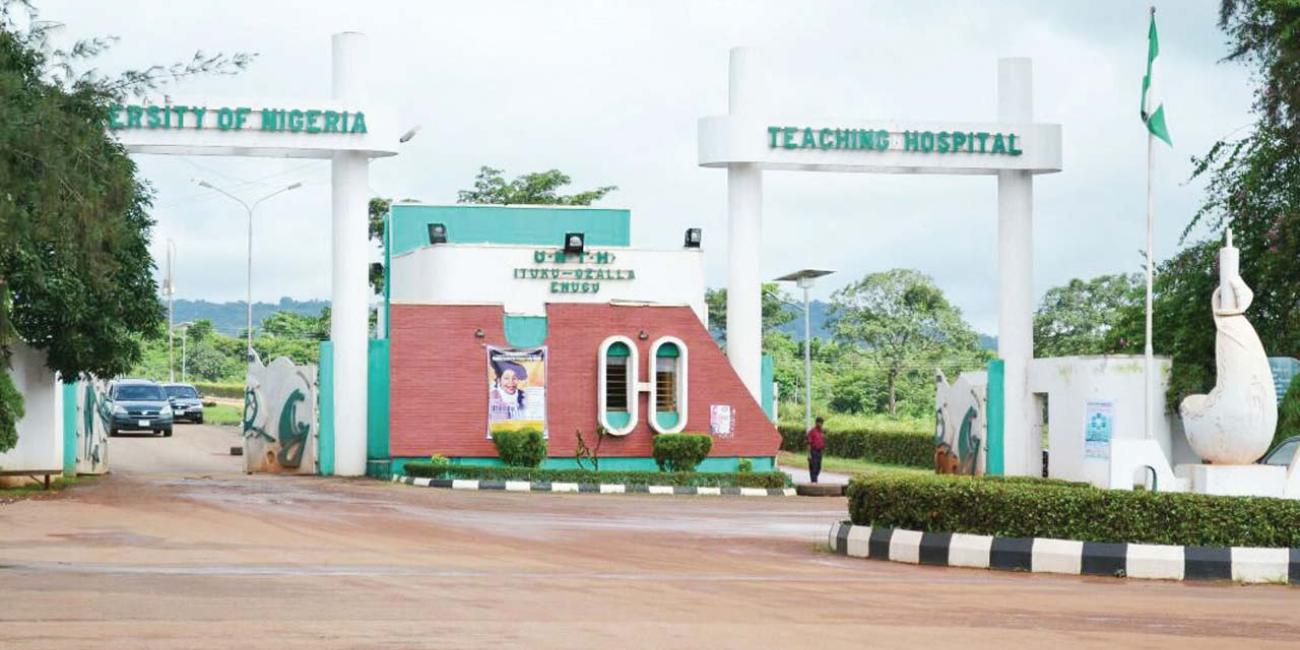A deeply disturbing story has emerged from the University of Nigeria Teaching Hospital (UNTH), Ituku-Ozalla, Enugu, where the institution has been accused of handing over three children belonging to a deceased woman to unknown individuals. The shocking revelation has triggered widespread outrage and calls for a thorough investigation into what many are describing as a gross violation of medical ethics and child protection laws in Nigeria.
The incident, which reportedly occurred earlier this month, has once again brought to the forefront serious concerns about accountability and ethical conduct within Nigeria’s public health institutions, especially in situations involving vulnerable individuals like children left without guardians.
The Tragic Incident: Mother Dies, Children Go Missing
According to eyewitness accounts and reports circulating on social platforms, a woman was admitted to the University of Nigeria Teaching Hospital, Enugu, for a surgical procedure but unfortunately lost her life during the operation. The woman, who was said to have arrived at the hospital with her three children, reportedly left no immediate family members or emergency contacts behind.
Following her death, confusion reportedly ensued over the whereabouts of the children. It was later alleged that hospital staff handed the children over to unknown persons under questionable circumstances. One of the children was said to have been given to a pastor, while the remaining two were allegedly kept within the hospital premises for a brief period before their whereabouts also became uncertain.
How the Allegation Came to Light
The shocking claim was first made public by a concerned citizen identified as Chinyere Jennifer James, who described herself as a Good Samaritan. According to her account, she was contacted by someone about the deceased woman’s situation and immediately visited the hospital to inquire about the children’s welfare.
Upon arrival, she was reportedly informed by a doctor that the mother had died and that the children had been handed over to third parties since there were no family contacts or next of kin available. She further alleged that a certain doctor demanded a sum of ₦20,000 to facilitate the “return” of one of the children to proper care, a revelation that sparked public outrage across social media platforms.
Eyewitness Claims and Public Reaction
Eyewitnesses and social media users have expressed disbelief and anger over what they described as an “inhumane and reckless” act by a major teaching hospital. Many questioned how a public institution could release minors to strangers without proper documentation, police involvement, or the presence of any verified family member.
Online reactions have been swift, with citizens demanding answers from the hospital’s management and calling for the intervention of relevant authorities, including the Ministry of Women Affairs, the National Human Rights Commission, and child protection agencies.
Some commentators described the alleged ₦20,000 demand as “an insult to the memory of the deceased” and “a blatant act of exploitation,” further intensifying public outrage.
Hospital’s Response and Ongoing Investigation
In response to the growing public backlash, management of the University of Nigeria Teaching Hospital reportedly acknowledged the allegations and announced that an internal investigation had been launched to verify the circumstances surrounding the incident.
While details of the probe remain undisclosed, the hospital emphasized its commitment to transparency and ethical standards, promising to hold accountable any staff member found guilty of misconduct. The spokesperson for the hospital, in earlier unrelated statements, had maintained that UNTH “operates with the highest level of professionalism” and does not tolerate unethical practices within its system.
However, as of the time of this report, no official statement has been released publicly addressing the specific claims about the three missing children or the alleged demand for payment.
Legal and Ethical Implications
The incident raises serious legal and moral questions about how Nigerian hospitals handle the affairs of deceased patients, especially when dependents or minors are involved. Under Nigerian law, when a patient dies leaving children or dependents without guardians, the institution has a duty to immediately inform social welfare authorities or the police.
Handing children over to unknown individuals, regardless of intent, could constitute child endangerment or negligent transfer, which are punishable offences under Nigerian child protection statutes.
Legal experts argue that if the allegations are confirmed, those involved could face charges ranging from negligence to child trafficking, as the transfer of minors without due process violates both national and international child-rights conventions.
Public Outcry and Calls for Accountability
The alleged disappearance of the three children has drawn widespread condemnation from human rights advocates, legal practitioners, and ordinary citizens alike. Many are demanding that the Federal Ministry of Health and the Medical and Dental Council of Nigeria step in to ensure that the matter is properly investigated and that justice is served.
Civil society organizations have also called on the Enugu State Government to ensure the immediate tracing of the children and to conduct an independent inquiry into the actions of the hospital staff involved.
A rights advocate from Enugu described the situation as “a heartbreaking reflection of the systemic failure in Nigeria’s public healthcare system,” emphasizing that hospitals must develop clear child-safeguarding policies to prevent such incidents from recurring.
Search Efforts and the Fate of the Children
As of now, the whereabouts of the three children remain unknown. Efforts by individuals and concerned groups to trace their location have reportedly yielded no results. Activists have urged the police and child welfare agencies to take the lead in locating and protecting the minors while ensuring that their late mother is given a proper burial.
The body of the deceased woman is said to still be in the UNTH mortuary as investigations continue.
What This Means for Nigeria’s Healthcare Ethics
This case has sparked renewed debate on the ethical standards in Nigerian hospitals, especially teaching institutions that serve as training grounds for future doctors and nurses. Many Nigerians have expressed concern that the incident, if confirmed, reflects a worrying lack of compassion and accountability in hospital administration.
The University of Nigeria Teaching Hospital, being one of the country’s oldest and most respected medical institutions, now faces immense pressure to demonstrate transparency and uphold public confidence.
Conclusion
The allegations against the University of Nigeria Teaching Hospital, Enugu, over the mysterious transfer of three children belonging to a deceased mother, have cast a dark shadow over one of Nigeria’s foremost medical institutions. While investigations are ongoing, the case has already fueled nationwide anger and deep concern about the protection of vulnerable persons within public hospitals.
Nigerians are now watching closely, demanding justice, accountability, and above all — the safe recovery of the missing children.
Until the hospital releases an official and transparent report, the questions surrounding this heartbreaking incident will continue to linger — and the call for reform in Nigeria’s healthcare system will only grow louder.



